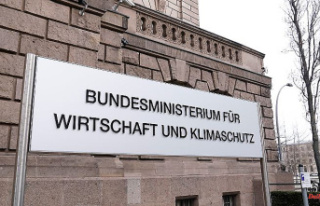On March 22, 2016, three suicide bombers from the terrorist organization Islamic State set off several bombs in Brussels. 32 people are killed and hundreds injured, some seriously. The trial against the perpetrators and helpers is now underway. The defendants appear relaxed and in a mood to complain.
More than six years after the Islamist terrorist attacks in Brussels, the trial against alleged perpetrators and helpers began today, Monday. Nine men are on trial in the Belgian capital, including Salah Abdeslam. The 33-year-old was sentenced to life imprisonment for the 2015 Paris attacks. Most of the accused sit in a glass case for security reasons. The verdict is made by a twelve-member jury. It is expected to be next summer.
During the attacks on March 22, 2016, three suicide bombers from the terrorist organization Islamic State (IS) detonated bombs at Brussels Airport Zaventem and in a subway station in the EU district. 32 people were killed and hundreds injured, some seriously. Three months earlier, 130 people had been killed in a series of Islamist attacks in various places in Paris. It is assumed that there are close connections.
A total of ten men have been charged with the attacks in Brussels. However, one is missing from the court: he probably died in the civil war in Syria. Eight defendants are charged with 32 counts of terrorist murder, attempted terrorist murder of 695 people and involvement in the activities of a terrorist organization. The public prosecutor only charges the ninth with the third point.
The trial was opened in the morning by the President of the Court, Laurence Massart. She asked the nine defendants for their names, age, occupation, place of birth and place of residence. Abdeslam appeared in a white wool sweater and replied: "33 years old. Electromechanic." During a break, he laughed and chatted with the other defendants. Another suspected Islamist, Mohammed Abrini, complained about the conditions during transport to the court.
Abrini appeared on camera images as a "man with a hat" during the attack on Brussels airport. He said he had to undress and listen to "loud satanic music" for transport to the trial. "We have endured your revenge for seven years," Abrini said. He will not answer any questions if this continues. Some lawyers also complained about the transport conditions.
Because of a dispute about the safety precautions, the start of the trial, which was originally planned for mid-October, had to be postponed. The accused should initially sit in individual cubicles. The defense opposed this. Now they sit together, in front of masked security officers, and can speak to their lawyers through gaps in the box. Two defendants against whom the allegations are less serious are not sitting in the glass case.
Some of the 900 joint plaintiffs were also in the room. Because of the size of the trial, the trial will take place in converted rooms of the former NATO headquarters. The process is expected to take six to nine months. For many victims and their families, the process is not easy. "We'll see," says Gaetan Meuleman. He is spokesman for the organization Life4Brussels (Life for Brussels), which represents the victims of the attacks.
Six of the accused - including Abdeslam - have already been convicted in the trial of the Paris attacks on November 13, 2015. The attacks in the French and Belgian capitals probably stem from the same terrorist cell.












